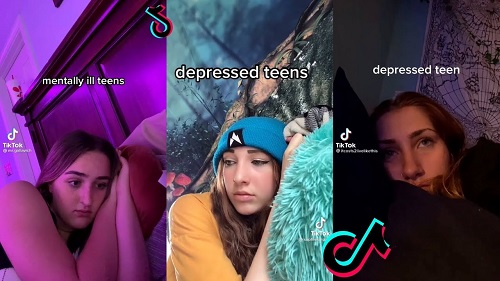
|
|

|
|
| April 19, 2024 |
|
Does Tik Tok feed teens a 'Diet of Darkness'? 
Calls to ban TikTok in the U.S. are growing louder.
Government leaders are trying to keep the popular China-owned social video platform away from schools, public workers, even entire states, on the grounds that users’ data could wind up in the wrong hands. Data privacy, though, might be less worrisome than the power of TikTok’s algorithm. Especially if you’re a parent. A recent study found that when researchers created accounts belonging to fictitious 13-year-olds, they were quickly inundated with videos about eating disorders, body image, self-harm and suicide. If that sounds familiar, a Wall Street Journal investigation in 2021 found that TikTok steers viewers to dangerous content. TikTok has since strengthened parental controls and promised a more even-keeled algorithm, but the new study suggests the app experience for young teens has changed little. What teens see on social media can negatively affect them psychologically. Plenty of research backs this up. The simplest evidence may be found in my earlier column about teens who developed physical tics after watching repeated TikTok videos of people exhibiting Tourette Syndrome-like behavior. A TikTok spokeswoman said the company has a team of more than 40,000 people moderating content. In the last three months of 2022, TikTok said it removed about 85 million posts deemed in violation of its community guidelines, of which 2.8% were suicide, self-harm and eating-disorder content. It also considers the removal of content flagged by users. “We are open to feedback and scrutiny, and we seek to engage constructively with partners,” the spokeswoman added. Story Date: May 30, 2023
|